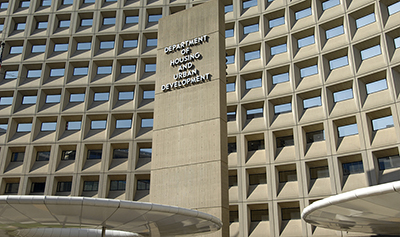
HUD Updates Steps in Boosting Housing Supply

HUD last week announced a series of steps aimed at boosting housing supply, particularly in areas with minority borrowers.
The announcement builds on June’s Our Way Home initiative to increase affordable housing supply in local communities and the Biden Administration’s Housing Supply Action Plan in May outlining administrative and legislative actions aimed at lowering housing prices, closing the housing supply shortfall in five years, and creating hundreds of thousands of affordable housing units over the next three years.
“Housing supply has been a ‘North Star’ for most of us,” a senior HUD official said.
Steps include:
–HUD is leveraging its Office of Housing, including FHA, to facilitate new construction, preserve existing housing stock and promote greater housing affordability.
–FHA is working to removing barriers to homeownership experienced by underserved communities, particularly communities of color. In fiscal year 2021, FHA served 457,489 borrowers who self-identified as borrowers of color and 716,028 first-time homebuyers. FHA served double the percentage of Black and Hispanic borrowers compared to the rest of the housing market in 2020 according to the latest available Home Mortgage Disclosure Act data.
–FHA is actively pursuing ways to use its programs to increase both the supply and financing of Accessory Dwelling Units, noting ADUs can offer increased affordability and unlock the potential for wealth-building while expanding the supply of affordable housing.
–Those who live in less expensive or rural areas, FHA is actively working to increase the number of FHA-insured, small-balance mortgages.
–HUD will take a series of steps to leverage manufactured housing to address both housing supply and affordability:
–HUD is finalizing a proposed rule to update the HUD Code, allowing greater production of manufactured homes with features that are demanded by consumers and are more comparable to site-built homes, such as roof pitch designs, open floorplans, and multi-unit dwellings. Other proposed changes will accommodate features sought by consumers seeking safe, modern, energy efficient HUD Code manufactured homes.
–FHA’s Title I manufactured home program provides FHA insurance on loans for manufactured housing, including those titled as personal property. In November 2021, FHA revised its Title I manufactured home and property improvement policies to make them easier to understand and implement for lenders. FHA is actively working on raising the outdated loan limits for this program to fit today’s market.
–FHA revised its Claims Without Conveyance of Title property disposition program on May 5, to add a 30-day exclusive sales period for owner-occupants, HUD-approved nonprofits, and governmental entities. The 30-day exclusive period gives these specified buyers an opportunity to bid on foreclosed properties before investors are allowed to participate during the CWCOT post-foreclosure sales period.-
–FHA also increased to 30 days the period of time when homeowners, HUD-approved nonprofit organizations, and governmental entities have an exclusive opportunity to bid on most listings of single-family homes on HUD’s real-estate owned sale site, HUD HomeStore. The previous exclusive period for these potential bidders was 15 days.
–FHA’s Multifamily mortgage insurance programs are supporting the creation and rehabilitation of affordable rental homes.
–FHA’s Multifamily mortgage insurance program has committed to insuring mortgages for multifamily properties in fiscal year 2022 year-to-date that will create 24,726 new rental homes.
–Supporting vital project-based rental assistance programs is the largest part of the Office of Housing’s portion of the HUD budget, at $13.9 billion enacted for fiscal year 2022. The Biden Administration proposed more for the program in his fiscal year 2023 budget, totaling $15 billion.
–The HOME Investment Partnership Program is the largest federal block grant to state and local governments, designed exclusively to create affordable housing for low-income households. HUD will work to strengthen and streamline the HOME program through rulemaking to optimize this critical resource for affordable housing for renting and homeownership.
–HUD will also provide technical assistance, peer learning opportunities, and/or listening sessions on core HUD supply programs. One example of this work is showing localities how the Community Development Block Grant can be used for local acquisition as a strategy to preserve affordable housing and counter the growing trend of large institutional investors purchasing large shares of local housing supply, including encouraging sales to local community organizations and mission driven developers.
